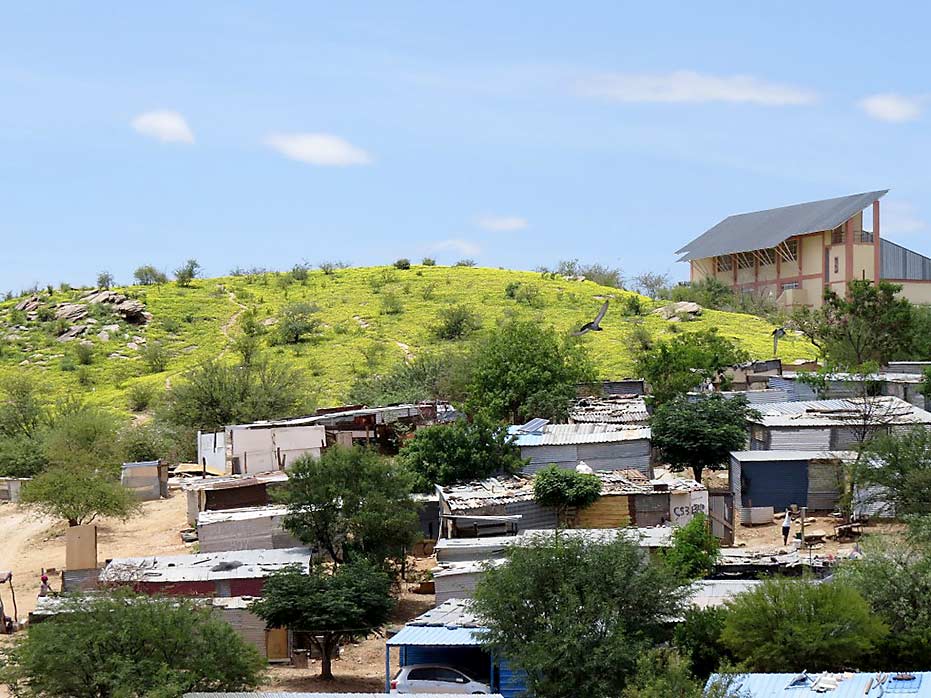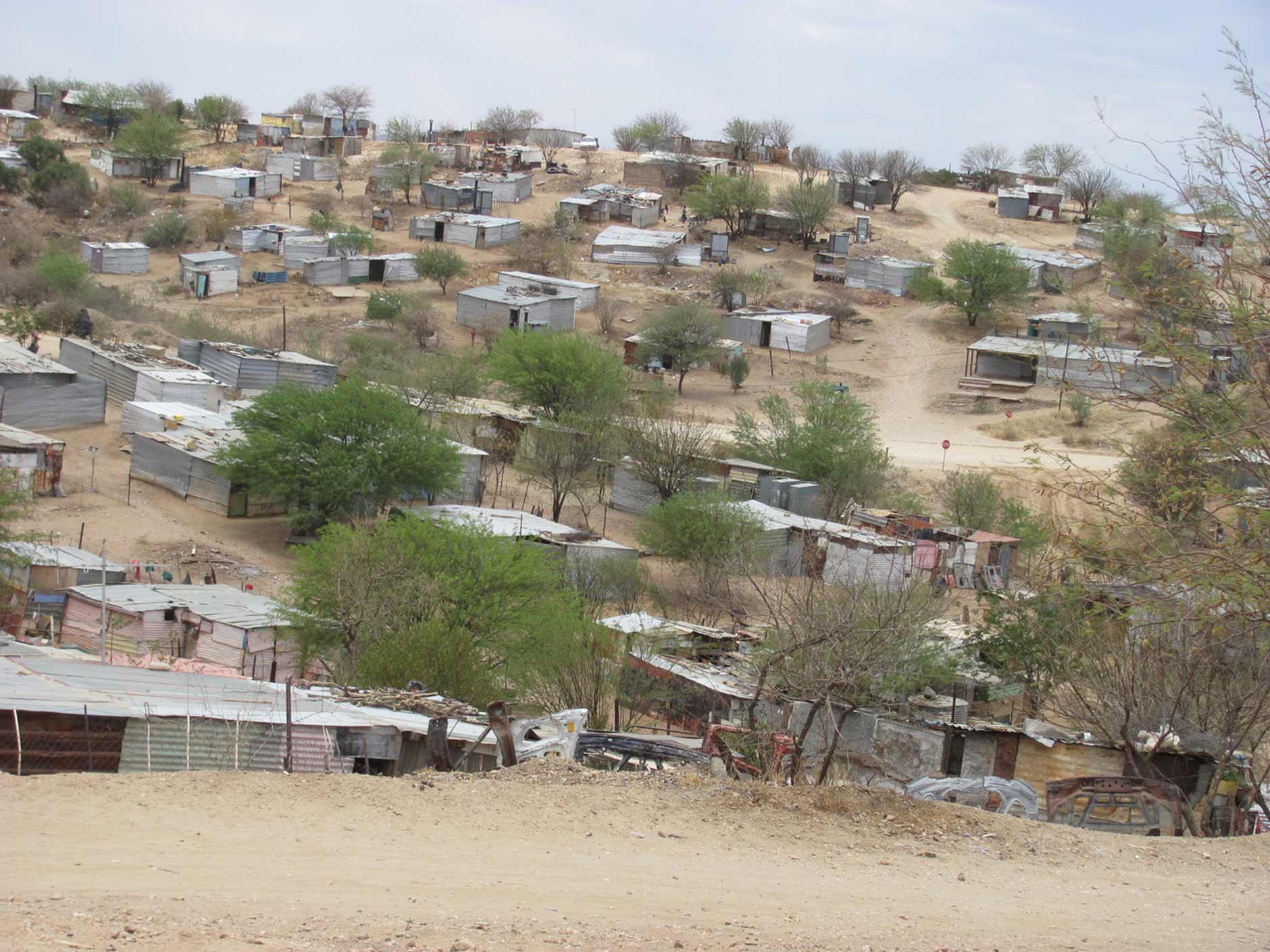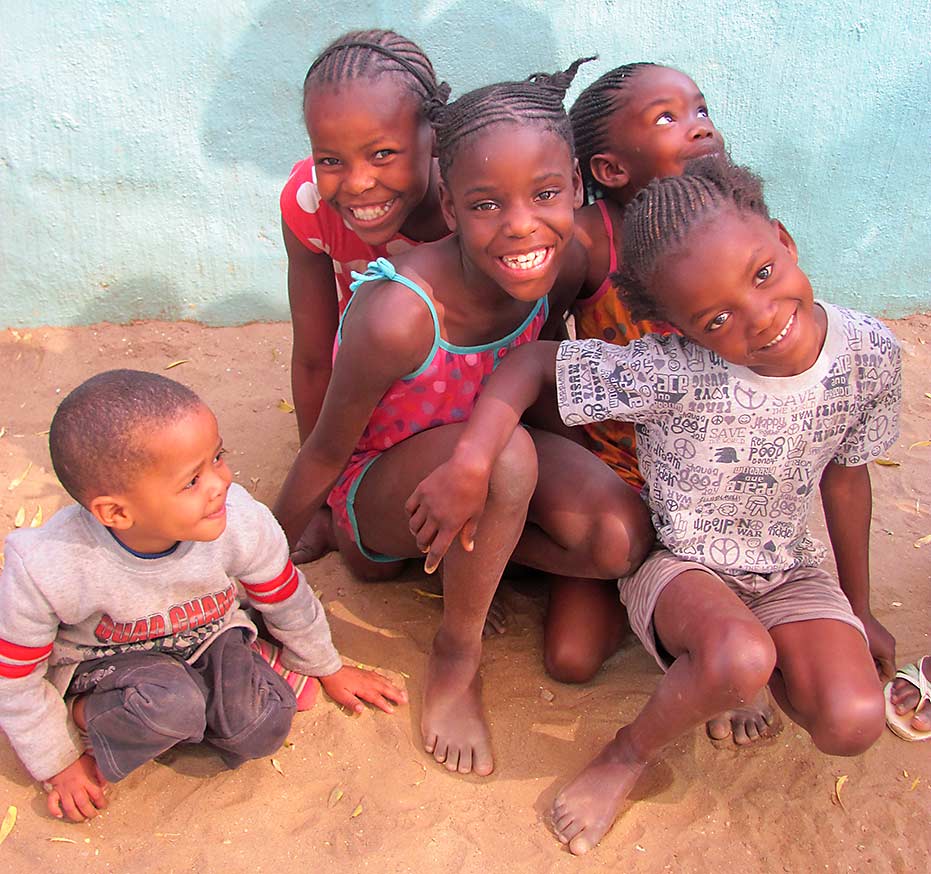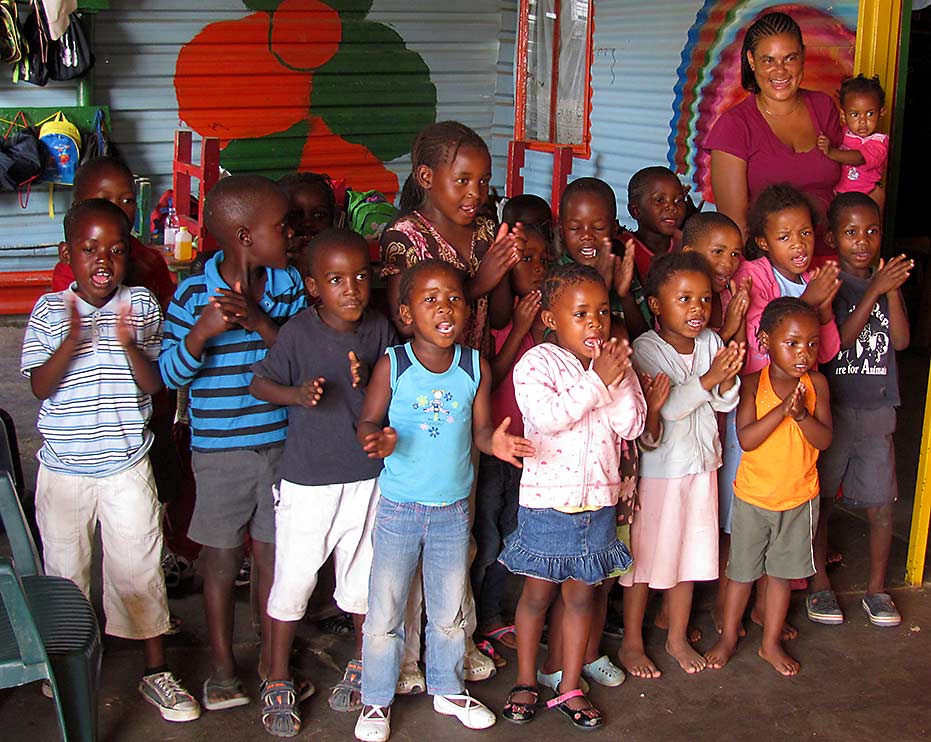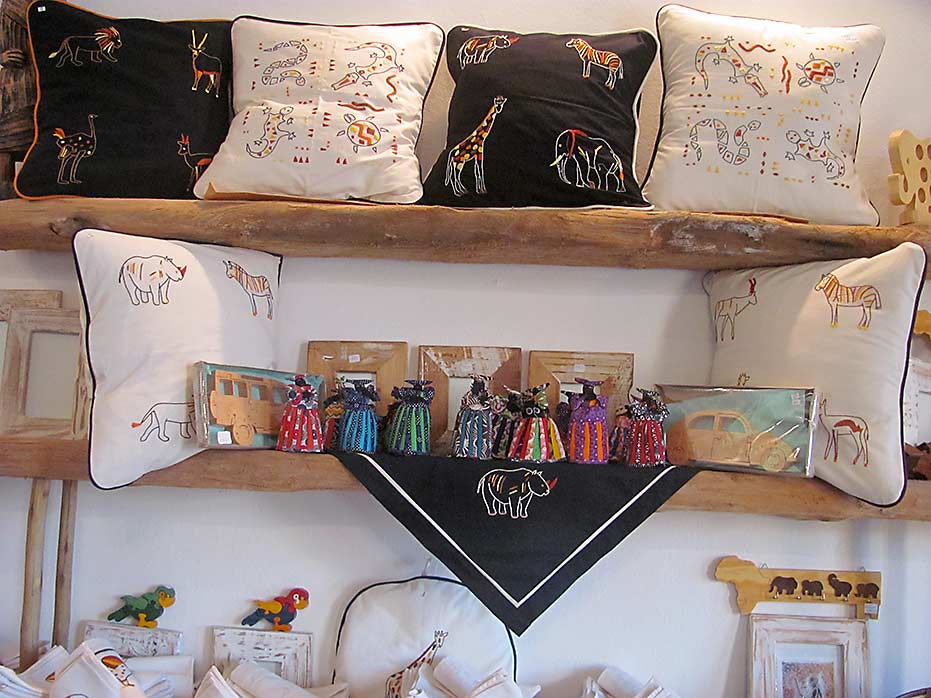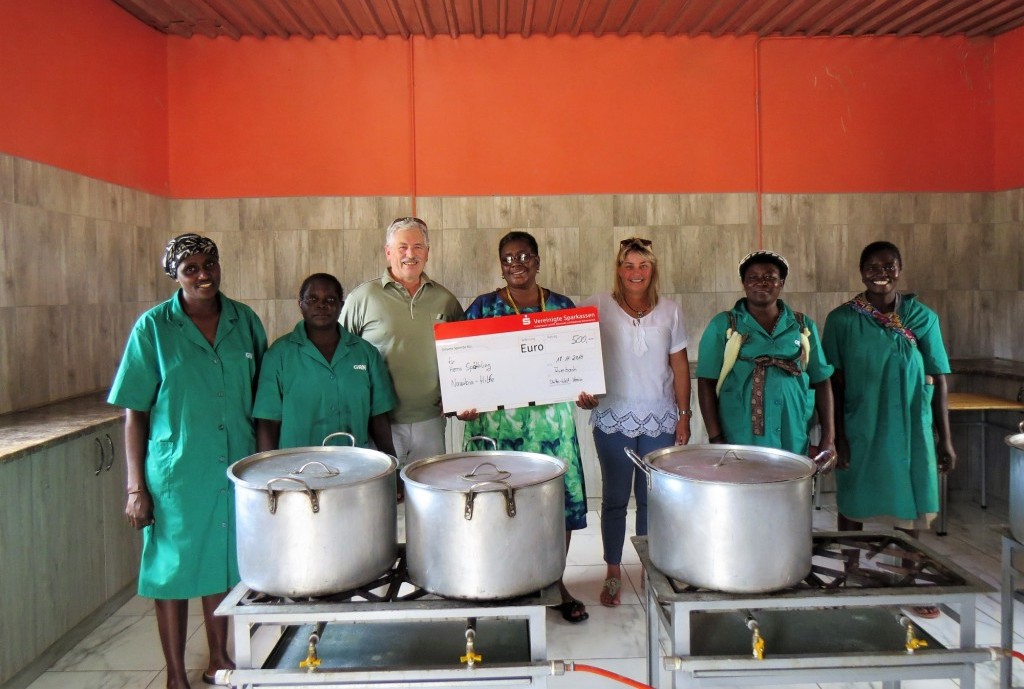Katutura - Windhoek
The population of the Namibian capital of Windhoek is marked by a high percentage of unemployment, illiteracy and unworthy living conditions. This applies especially to the numerous slum areas around Windhoek, where there are only a few water points, hardly any electricity supply and generally an insufficient infrastructure. Migrants are mostly penniless and find shelter in improvised housing made from corrugated sheets, wood slats and plastic covers. The never ending influx generates more misery daily. Thus, one water tap has to provide for nine huts made from corrugated sheets or cardboard. Sewerage systems and electricity are utopias. The situation of the children and youngsters in these areas are especially tough. Mostly without a mother or father and without a helpful infrastructure, they often end up on the streets with all its dangers for body and soul.
